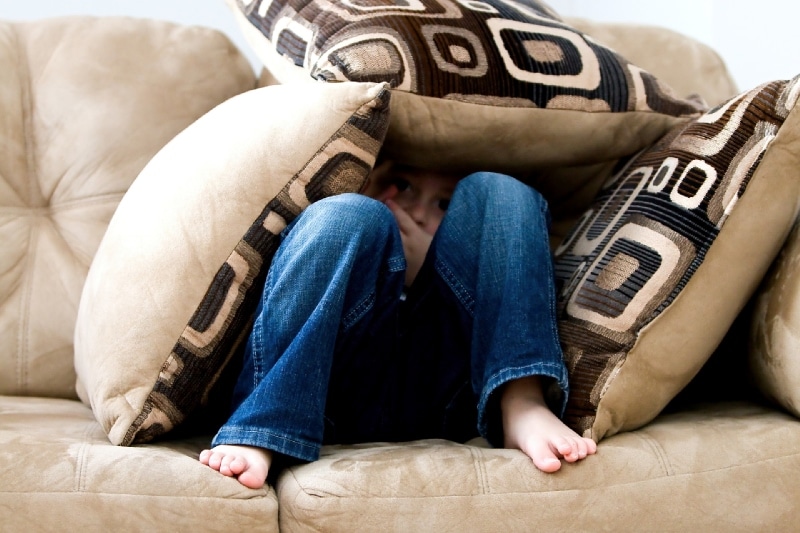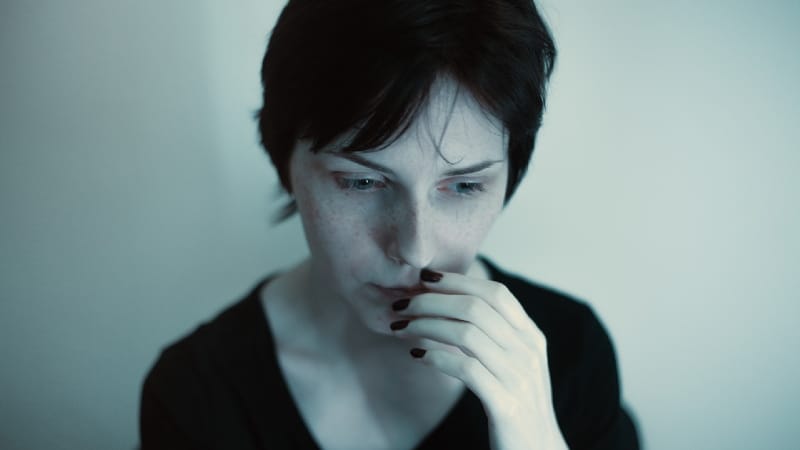The fear of death has a name: “thanatophobia". Thanatophobia is an extreme, anxiety-forming fear of dying, which has the capacity to render sufferers incapable of living a normal life. Most of us don’t experience the fear of dying to such a degree, nevertheless, it does fill the thoughts of some of us, almost constantly.
Fear of death can arise in many ways:
- Witnessing someone you love dying slowly due to a terminal illness.
- Losing a parent, sibling, close friend or family member suddenly.
- Loss of a pet.
- Becoming ill and/or incapacitated.
- Hypochondria may lead to, or be the cause of, fear of dying.
- Reading and hearing about tragedies and the deaths of notable personalities in the media.
- Having a close escape, for example, if you have been caught up in a terrorist incident.
- Panic attacks may manifest as a fear of dying.

Childhood Fear of Death and Dying
Tara remembers experiencing a fear of death, both her own and her family’s, when she was eight years old. She can’t remember how it started, just that she was terrified that she’d wake up one morning to find her parents dead. For a while she was haunted by these thoughts, and her parents became really worried, although she was unable to explain what the problem was. She thought even saying it out loud would cause it to happen. Then, the fear disappeared almost as quickly as it began. She says she was distracted by her mother’s pregnancy and the arrival of her baby sister. The fear of death never returned and she only remembered it while undertaking a deep journaling course.
Many children worry about death. They may have seen something on TV, or experienced a scary dream. If you are concerned about your child having a fear, try talking to them gently and reassuring them. It is important that you don’t dismiss their fears, or even feed them by saying, “Oh everyone’s gonna die one day.” You have to find a way of discussing the subject, validating their thoughts and together discovering a way to deal with them.
Even if your child doesn’t verbalize any fear of death, it’s a good idea to bring the subject up when the opportunity arises, such as the death of a pet, or even if you find a dead bird or insect while out walking. Your child will notice that talking about death in very general terms doesn’t upset you, and will take their cue from you.
If your child is exhibiting extreme fear of death, or is grieving, seek professional advice.
Child Development Institute: How To Talk To Kids About Death

Life Loses Meaning
Anneka, a 22 year-old student, says she fears death constantly. So much so that life has lost all meaning for her. She doesn’t see the point in living a full life if all her memories and experiences will one day be wiped out. Her fear of dying has caused her to live in a state of derealization, which means that she views her daily life at one step removed, as if viewing it through a window or on a movie screen or as if she is in a waking dream. Life has become unreal, and she lives constantly in her head, absorbed in her 'death thoughts.'
When an opportunity comes Anneka’s way, she will usually turn it down because, she says, there’s no point. She says she wants to be happy and sometimes is for a short while, but then her anxiety flips in and thoughts of death overwhelm her once more.
Anneka remembers when her fears first began at eight years of age. She slept in her parents’ room for a while, but her anxiety kept her awake and eventually they became ‘fed up’ and locked her in her room. One time, her crying ‘disturbed’ them so much, they shut her in the cellar.
She is currently working with a therapist.
Coping with the Fear of Death
Extreme cases of thanatophobia should be treated by a professional therapist or psychologist. Ask your doctor for a referral. Thanatophobia is usually accompanied by severe depression, so it is really important that these issues are addressed by experienced professionals.
If your anxiety about death is not so severe and manifests as intermittent, disturbing thoughts, there are several methods you can try to combat it.
- Spend some time delving right into the fear. Allow yourself to explore what death means to you. Imagine what it might be like. Hold your fears up to the light and see what they could be telling you about the way you live your life. Journaling is fantastically helpful in clarifying your thoughts around death. Remember that it will take several sessions to enable you to lay your anxiety around death to one side.
- Yoga can help anxiety and even dispel it completely. Find a local class or, alternatively, you can teach yourself with the help of all the resources on the internet. Practice daily for at least ten minutes, and longer if possible.
- Mindfulness is another spiritual practice that will help you feel calmer when thoughts of dying arise. Simply focus on what you are doing in the moment. Breathe steadily and do some mundane task, and focus on it fully. Wash the dishes. Be aware of every sense. Hear the clatter of the plates, smell the dish soap. Look at the water gushing from the faucet. Feel the warmth of the soapy water on your hands. Wash each dish completely and deliberately. Your mind fully engaged with what you are doing. When you are practicing mindfulness, it’s impossible to think of anything else. This practice can help you at any time.
- Research Near Death Experiences and think about death on a spiritual level. Immerse yourself in the idea that death is a part of life, and that being dead is not death at all, but our soul returning to its natural non-incarnated state.

Remember that fear is the opposite of love. When you are feeling fear, you cannot be feeling love… and when you are feeling love, you cannot be in fear.
"End? No, the journey doesn't end here. Death is just another path, one that we all must take. The grey rain-curtain of this world rolls back, and all turns to silver glass, and then you see it."
—J.R.R. Tolkien, The Return of the King
